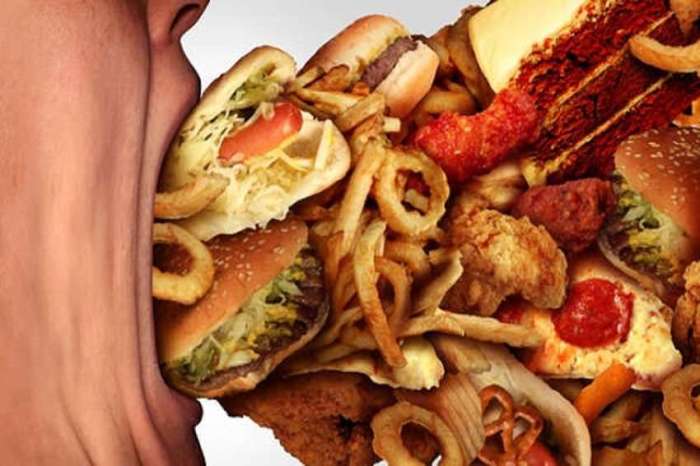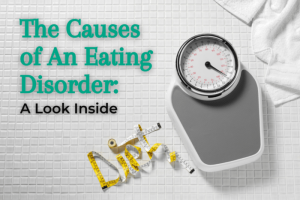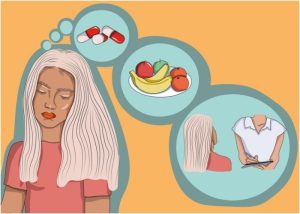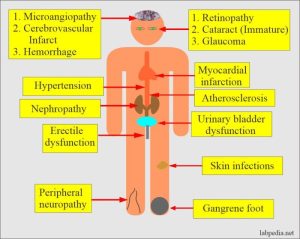
Step into the world of binge eating disorder help where we unravel symptoms, strategies, and the importance of seeking professional support in an engaging and informative way.
Let’s dive into the key aspects of managing binge eating disorder and finding the help you need.
Binge Eating Disorder Help
Binge eating disorder is a serious mental health condition characterized by recurrent episodes of consuming large quantities of food in a short period of time. Individuals with binge eating disorder often feel a loss of control during these episodes and may experience feelings of guilt, shame, or distress afterwards.
Symptoms and Signs of Binge Eating Disorder
- Regularly eating large amounts of food in a short period of time without feeling physically hungry
- Eating until uncomfortably full
- Eating alone due to embarrassment about the amount of food being consumed
- Feelings of guilt, shame, or disgust after binge eating episodes
- Difficulty controlling eating behaviors
Strategies for Managing Binge Eating Episodes
- Practice mindful eating by paying attention to hunger and fullness cues
- Keep a food diary to track eating patterns and emotions associated with binge eating
- Engage in regular physical activity to improve mood and reduce stress
- Seek support from a therapist or support group specializing in binge eating disorder
- Avoid restrictive diets and focus on balanced, nutritious meals
Importance of Seeking Professional Help for Binge Eating Disorder
- Professional help can provide personalized treatment plans tailored to individual needs
- Therapy such as cognitive-behavioral therapy (CBT) can help address underlying emotional issues contributing to binge eating
- Medical professionals can monitor physical health and provide necessary interventions
- Recovery from binge eating disorder is possible with the right support and treatment
Cosmetic Surgery

Cosmetic surgery is a branch of plastic surgery that aims to enhance a person’s appearance. While it can provide numerous benefits, it is important to be aware of the risks associated with these procedures and consult with a qualified plastic surgeon before undergoing any cosmetic surgery.
Common Cosmetic Surgical Procedures
- Rhinoplasty: Also known as a nose job, this procedure can reshape the nose for aesthetic or functional reasons.
- Breast Augmentation: Involves the use of implants to increase the size or enhance the shape of the breasts.
- Liposuction: A procedure to remove excess fat deposits from specific areas of the body.
- Facelift: Helps reduce the signs of aging by tightening the skin on the face and neck.
Benefits of Cosmetic Surgery
- Improved self-esteem and confidence
- Enhanced physical appearance
- Correction of physical abnormalities
- Rejuvenation and anti-aging effects
Risks of Cosmetic Surgery
- Infection
- Scarring
- Complications with anesthesia
- Unsatisfactory results
Consulting with a Qualified Plastic Surgeon
It is crucial to schedule a consultation with a qualified plastic surgeon before undergoing any cosmetic procedure. A plastic surgeon can assess your individual needs, discuss the risks and benefits, and help you make an informed decision about whether cosmetic surgery is right for you.
Foot Health
Maintaining good foot health is crucial for overall well-being as our feet play a vital role in our daily activities and mobility. Neglecting foot care can lead to discomfort, pain, and even more serious issues. Here are some tips to help you keep your feet healthy:
Tips for Maintaining Healthy Feet
- Wash your feet daily with soap and water, and make sure to dry them thoroughly, especially between the toes.
- Trim your toenails straight across to prevent ingrown nails.
- Moisturize your feet regularly to prevent dryness and cracking.
- Choose comfortable and properly fitting shoes to avoid blisters, calluses, and other foot problems.
- Avoid walking barefoot in public places to reduce the risk of infections.
- Stretch and exercise your feet to improve circulation and flexibility.
Common Foot Problems and Remedies
- Blisters: Keep the area clean and dry, and avoid popping the blister to prevent infection. Use padding or bandages to protect the blister.
- Ingrown Toenails: Soak your feet in warm water to soften the nail, and gently lift the edge of the nail. Avoid cutting the nail too short or rounding the edges.
- Plantar Fasciitis: Rest your feet, apply ice, and perform stretching exercises. Supportive footwear and orthotic inserts can also help alleviate pain.
- Corns and Calluses: Use pumice stone to gently exfoliate the hardened skin. Moisturize the area and wear cushioned insoles to reduce pressure.
- Athlete’s Foot: Keep your feet clean and dry, wear moisture-wicking socks, and use antifungal creams or powders to treat the infection.
Heart Disease

Binge eating disorder can have serious consequences on physical health, including an increased risk of heart disease. When individuals engage in frequent episodes of binge eating, it can lead to weight gain, high blood pressure, high cholesterol levels, and insulin resistance, all of which are risk factors for heart disease.
Lifestyle Changes for Prevention
Making positive lifestyle changes can help prevent heart disease in individuals struggling with binge eating disorder. Some important steps to take include:
- Eating a balanced and nutritious diet to maintain a healthy weight.
- Engaging in regular physical activity to improve cardiovascular health.
- Managing stress through techniques like mindfulness, meditation, or therapy.
- Avoiding smoking and excessive alcohol consumption.
- Getting an adequate amount of quality sleep each night.
Importance of Cardiovascular Screenings
Regular cardiovascular screenings are essential for individuals with binge eating disorder to monitor their heart health. These screenings can help detect early signs of heart disease, allowing for timely intervention and treatment. It is crucial to work closely with healthcare providers to schedule and attend these screenings as recommended.
Health Diabetes
Binge eating disorder can have a significant impact on diabetes management. Individuals with binge eating disorder may struggle to maintain a healthy diet and manage their blood sugar levels effectively, leading to complications in diabetes control.
Impact of Unhealthy Eating Habits
Unhealthy eating habits associated with binge eating, such as consuming large amounts of high-calorie, sugary foods in a short period of time, can disrupt blood sugar levels and insulin sensitivity in individuals with diabetes. This can make it challenging to maintain stable glucose levels and increase the risk of diabetes-related complications.
- Monitor Blood Sugar Levels: Individuals with diabetes who struggle with binge eating should monitor their blood sugar levels regularly to track the impact of their eating habits on glucose levels.
- Seek Professional Help: It is essential for individuals with diabetes and binge eating disorder to seek support from healthcare professionals, such as dietitians or therapists, who can provide guidance on managing both conditions effectively.
- Develop Healthy Coping Strategies: Finding alternative ways to cope with emotions or stress, rather than turning to food, can help individuals with diabetes manage their binge eating tendencies and improve overall diabetes control.
- Focus on Balanced Meals: Prioritizing balanced meals that include a mix of carbohydrates, proteins, and fats can help stabilize blood sugar levels and reduce the urge to binge eat on unhealthy foods.
- Stay Active: Incorporating regular physical activity into daily routines can not only improve overall health but also help regulate blood sugar levels and reduce the risk of diabetes complications.
Eating Disorders
Eating disorders are serious mental health conditions that can have a significant impact on a person’s physical and emotional well-being. These disorders often involve unhealthy behaviors around food and eating, as well as distorted body image. Among the different types of eating disorders, binge eating disorder is one that is characterized by recurrent episodes of uncontrollable eating, often resulting in feelings of guilt, shame, and distress.
Comparison of Eating Disorders
- Anorexia Nervosa: Individuals with anorexia nervosa have an intense fear of gaining weight and often restrict their food intake significantly, leading to dangerously low body weight.
- Bulimia Nervosa: People with bulimia nervosa engage in episodes of binge eating followed by purging behaviors, such as vomiting or excessive exercise.
- Orthorexia: Orthorexia is an obsession with eating only healthy or “pure” foods, often leading to restrictive eating patterns and significant distress.
Psychological Factors in Eating Disorders
- Low self-esteem and body image issues can contribute to the development of eating disorders, as individuals may use food as a way to cope with negative emotions.
- Perfectionism and a desire for control are common traits in those with eating disorders, as these conditions provide a sense of order and accomplishment in a person’s life.
- Trauma, such as childhood abuse or neglect, can also play a role in the development of eating disorders, as individuals may use disordered eating behaviors as a way to numb difficult emotions.
Resources for Eating Disorders
- National Eating Disorders Association (NEDA): NEDA provides resources, support, and treatment options for individuals struggling with eating disorders.
- Eating Disorder Hope: This website offers information on eating disorder recovery, treatment options, and inspirational stories from individuals in recovery.
- Therapy and Support Groups: Seeking therapy from a mental health professional who specializes in eating disorders can be beneficial, as well as joining support groups to connect with others who understand your struggles.
Ending Remarks
As we conclude our journey through binge eating disorder help, remember to prioritize your well-being and seek the necessary support for a healthier future.
Commonly Asked Questions
Can binge eating disorder be managed without professional help?
While self-help strategies can be beneficial, seeking professional help is crucial for effective management and long-term recovery.
What are some common signs of binge eating disorder?
Signs include consuming large amounts of food in a short period, feeling a lack of control during eating episodes, and experiencing guilt or shame afterwards.
How can one support a loved one struggling with binge eating disorder?
Offering non-judgmental support, encouraging professional help, and practicing empathy can be key in supporting someone with binge eating disorder.





